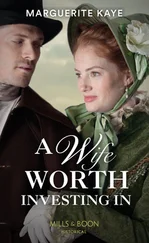Deborah shook her head. ‘He died five years ago. I rarely saw him once I was married. I often wish I had made more of an effort.’ It was surprising how guilty she felt even now, and no amount of telling herself that Uncle Peter had made no effort to keep in touch either made any difference. She had been afraid to let him see her and had kept him at a distance as she kept everyone else. ‘I don’t know how we came on to this subject,’ she said brusquely, ‘you cannot possibly be interested in my rather pathetic life.’
‘I’m interested in you, Deborah.’
She concentrated on tucking a stray lock of hair back behind her ear, dipping her head to cover the faint traces of colour in her cheeks. ‘I can think of any number of topics more interesting.’
Elliot was much inclined to pursue the subject, but his instincts warned him it would be unwise. Teasing out secrets was second nature to him. Knowing when to stop lest he betray just how much he had garnered was a subtle art, but one which he knew he had mastered. Though it had to be said, he admitted wryly to himself, that Deborah was proving to be more of a challenge than any close-mouthed diplomat. ‘Why did I invent the Peacock, then? Does that constitute a more interesting topic?’
Deborah nodded. ‘Provided it does not also constitute an intrusion. I would like to know, for you puzzle me. Your victims are selected too carefully for them to be random. Do you have some sort of personal grudge against them?’
‘What makes you say that?’ Elliot asked sharply.
‘I don’t know.’ Deborah frowned. ‘I suppose I cannot believe you do it for personal gain and there are too many robberies for it to be simply the thrill of it which drives you. You’d have become bored by now if that was it.’
‘You are very perceptive. It is to be hoped that none of the gentlemen at Bow Street has your wit.’
‘None of the gentlemen at Bow Street has my inside information. Is it too personal? I will understand if you don’t wish to say any more.’
Elliot drummed his fingers on the arm of the chair. His instincts were to confide in her, though common sense told him that by doing so he was taking an unwarrantable risk. Not of deliberate exposure, she would not do that, but an inadvertent comment, a remark let slip in the wrong company—how could he be sure she would not do that?
He just knew. She was as close as a clam and, of her own admission, she lived like a hermit. Besides, he wanted to tell her. He wanted her to know. ‘You were right about my victims,’ he said. ‘They are very carefully selected. All of them were at some point responsible for the supply chain—or lack of it—to the army. Medical supplies, orderlies and doctors, boots, basic rations, horses. Most of all horses. They kept us short of all of those things, because after all, what does an army need to fight except guns? Even if you can’t get the guns to the battlefield. Even if you can’t get the men wounded by those guns misfiring back to a field hospital. What do they care? They don’t,’ he said flatly. ‘I know they don’t because all my letters and protests and reports fell on deaf ears at the time, and now—well, now it is done and everyone wants to forget all about it, so there is even less point in letters and reports and protests.’
‘So you take what will hurt them instead.’
‘Yes, that’s exactly what I do.’
‘Did you lose many men because of such shortages?’
‘Yes.’
‘Friends, too? Forgive me, but it seems to me such a very personal thing you are doing, there must have been someone …’
‘There was. My best friend.’ Elliot gripped the arms of his chair so tightly that his knuckles showed white.
‘Henry,’ Deborah said gently. ‘I’m so sorry.’
Elliot nodded curtly.
‘I truly am sorry, I didn’t mean to upset you; you don’t need to say any more.’
‘I want to,’ Elliot said, surprising both of them. ‘I want to tell you.’ He swallowed repeatedly, cleared his throat. ‘We joined up together, Henry and I, I told you that already. We worked our way through the ranks together, though he was much too ill-disciplined to keep his stripes for long. He made it to captain once, but it only lasted about six months. He was a first-class soldier. We always looked out for each other. When I needed an extra pair of hands, I always turned to Henry. He was quick with his fists, but he knew the importance of keeping other things close, which was important in my—my alternative line of business.’
He paused. Across from him, Deborah was gazing at him intently. Would she be shocked? He doubted it, somehow. More likely excited, as she was by the Peacock. That decided him. ‘The thing is, I wasn’t just a fighting man. There’s a reason why the Peacock is so able.’ He grinned. ‘Actually, it’s ironic that the very skills I learned in order to steal secrets are the same ones I use to steal their property now. Most of which, I hasten to add, was stolen in the first place.’
Deborah stared at him in utter astonishment. ‘You mean—what you’re saying is that you—you stole ? At our Government’s behest? But why? What did you—oh! My God, you were a spy?’
He should have known how she would react. Her eyes were sparkling. Elliot laughed. ‘Yes, I was.’
‘Good grief! No wonder civilian life bores you. You must tell me—I wish you will tell me—I don’t know—anything, all of it—no, I don’t expect you can tell me all of it. Goodness, what secrets you must know.’ Deborah chuckled. ‘How horrified the likes of Jacob would be if they knew. You are quite right, Elliot, it is irony past price. Can you tell me more? Were you a master of subterfuge?’
Danger, even if it was vicarious, certainly brought her to life. ‘I’m afraid it was rather more mundane than that. If anything, I was a master of patience.’ He told her a few choice stories because he liked to see her laugh, because he found her laughter infectious, and he told her a few more because returning to the subject in hand was too painful, but he underestimated her.
‘He must have been more like a brother than a friend. Henry, I mean,’ Deborah said suddenly, interrupting him in the middle of a story. ‘What happened?’
‘He was wounded in the Pyrenees during the siege on San Sebastian. He took a bullet in the leg, above the knee. It smashed the bone—he’d have lost his leg, but it shouldn’t have been fatal. Only they couldn’t reach him because there were no carts and no mules.’
‘Oh God.’ Deborah covered her mouth, her eyes wide with horror.
Elliot’s knuckles were white. ‘For more than a week, he lay in agony in the blistering sun with his wound festering. He died of a fever a few days after they finally got him to the field hospital. I was with him, at the end, though he hardly recognised me. He died for want of a mule. A mule!’ He thumped his fist down hard on the chair. ‘But what do those bastards in the War Office with their lists and their budgets know of that? What does it matter, when a man with one leg would have been no bloody use to them anyway? What do they know of the suffering, the agonies that Henry and thousands like him went through, and what do they care now for the survivors?’
‘But you care,’ Deborah said, shaken by the cold rage. ‘You care enough to steal from them, to make reparations for them, is that it?’
‘The money goes to a charity which helps the survivors.’ Now that he had opened the floodgates his bitter anger, so long pent-up, demanded expression. ‘Someone has to help them,’ Elliot said furiously. ‘While they fought for their country, their country learned how to do very well without them. Now that the Government no longer needs them to surrender their lives, their limbs and their hearts on the battlefield, it has decided it has no need to reward them with employment, back pay, pensions. It is not just the men, it is their widows and children who suffer.’
Читать дальше












